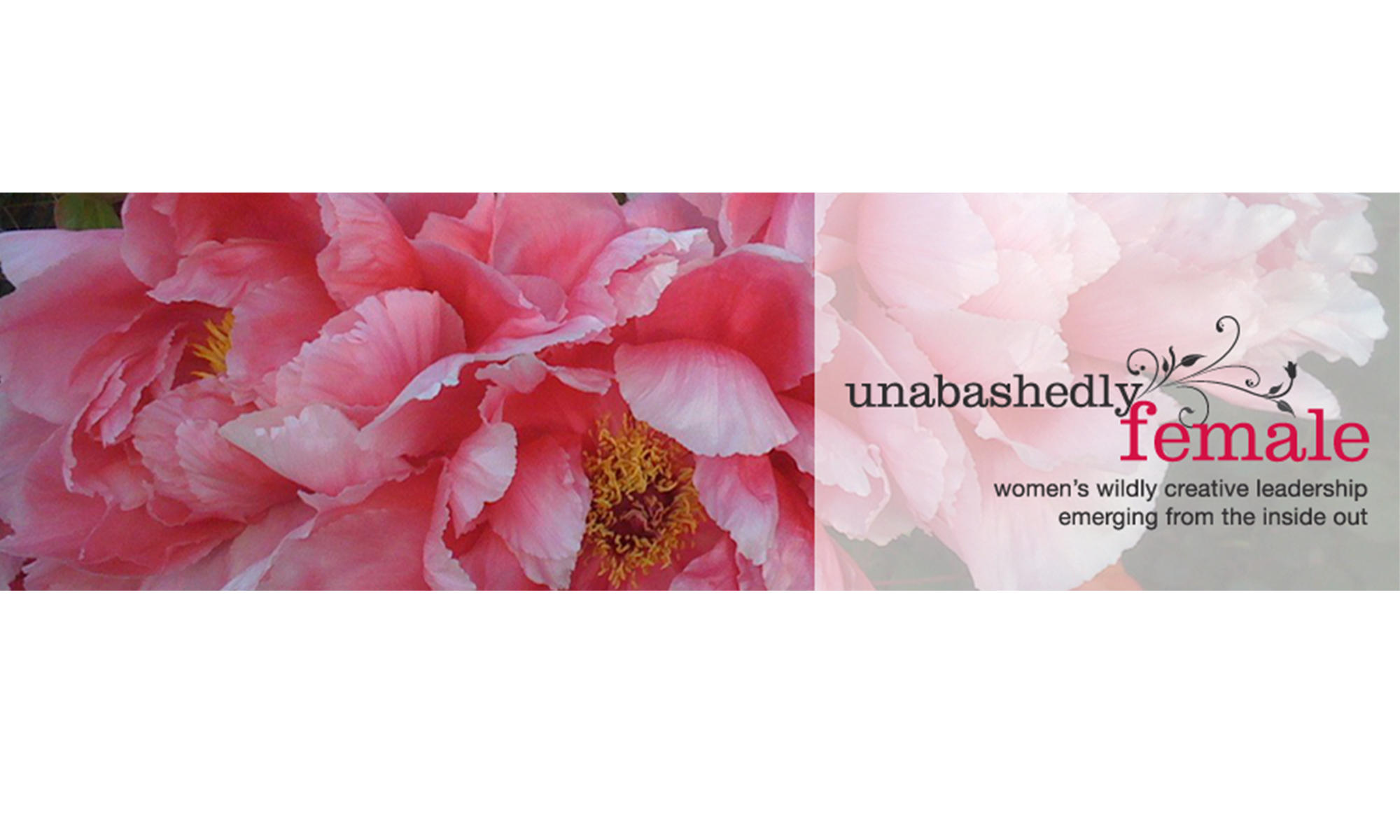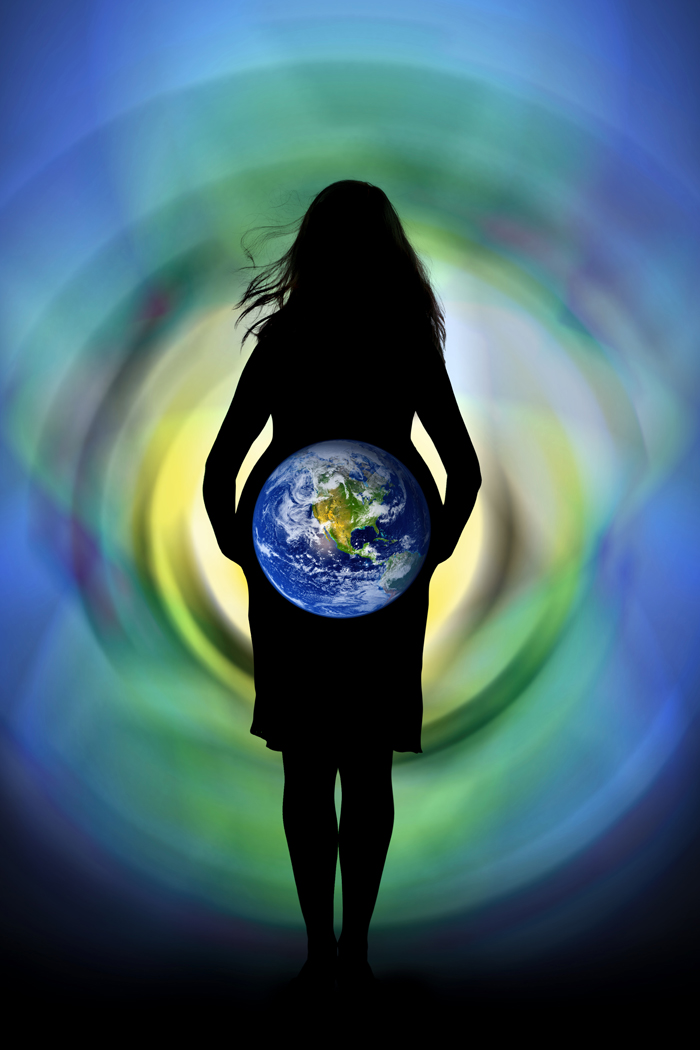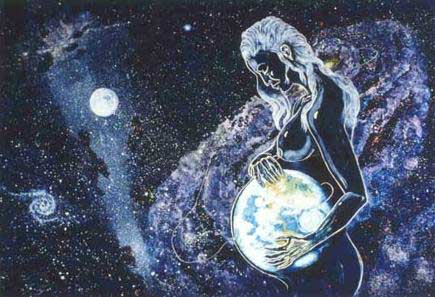What is it to be a woman, in the fullest sense?
I’ve been sitting with this question now since January 5th, the day I read that Mary Daly had died.
It’s not that I hadn’t thought of this before, doing the work I do. Coaching is all about this. And, Unabashedly Female? This blog reflects my experience in living this question, What is it to be female?
But, a quote I read, penned by Mary, in one of the columns celebrating (make that celebrating/vilifying) Mary resonated so deeply. Right away my mind (that lovely roommate I live with) said, “Yes. OMG, she’s a genius. Mary Daly brought it.”
You see, I hadn’t heard of her until last year. For anyone who has read the scholarly works of the feminist movement, Mary Daly is well-known. But, even though I reached womanhood in the seventies, and even though I personally witnessed the way the feminists of the second-wave were vilified, something that still haunts me to this day, I didn’t really read feminist scholarly works. When I first read some of what Daly wrote last year, albeit the tamer bits, I was blown away by the ideas she brought to the table.
Here’s the quote that got me:
“Ever since childhood, I have been honing my skills for living the life of a Radical Feminist Pirate and cultivating the Courage to Sin,” she wrote in the opening of “Sin Big,” her New Yorker piece. “The word ‘sin’ is derived from the Indo-European root ‘es-,’ meaning ‘to be.’ When I discovered this etymology, I intuitively understood that for a woman trapped in patriarchy, which is the religion of the entire planet, ‘to be’ in the fullest sense is ‘to sin.’ “~ Mary Daly (from Jan 5, ’10 Boston.com article, “Mary Daly, pioneering feminist who tussled with BC, dies at 81.)
“For a woman trapped in patriarchy, which is the religion of the entire planet, ‘to be’ in the fullest sense is ‘to sin.'”, is a bold, bold statement.
“For a woman … ‘to be’ in the fullest sense is ‘to sin’.
::
Mary Daly was one courageous woman. For many, she was way too out there in her feminist radical philosophy. She was confrontational. She pushed the limits of what it means to be a feminist, hard. She set the parameters. She was willing to go toe-to-toe with the deeply held principles of patriarchy, the structure that espouses, and enforces, domination as a way of life. Many found her to be just as oppressive as those she was confronting.
As I searched the Internet in these last few days since her death, I have found a very wide spectrum of opinion about Daly, her philosophy, her manner, her life, and pretty much everything else you could think of.
Mark Vernon of the guardian.co.uk wrote, “She was an audaciously creative spirit; an awkwardly witty, deadly serious writer. She arguably did more to stretch what is possible to think in contemporary feminist theology than any other.”
At the end of Vernon’s post, the comments created a stream of back and forth banter that, in itself, was telling of the spectrum of opinion on feminism, and the still very-much-present gender upheaval, that exists in the world. Even after her death, controversy still surrounds Mary Daly.
::
But back to my question, What is it to be a woman, in the fullest sense?
As I consider the ramifications of Daly’s statement, that to be fully this female that I am is ‘to sin’, it points to the most basic premise that we, as women, are already sinners simply by being, by breathing, by existing. Basically, this is the whole Eve complex. Our fall from grace. The idea that we women are responsible for sin.
It then follows that if we do something to minimize our fullness, meaning we learn how ‘to be’ in the ‘not-fullest sense’, then we mitigate our sinning potential, so to speak. We minimize how much of a sinner we are.
I have to admit, when I am really honest with myself, much of my 53 years here on this earth have been filled with an underlying, nauseating sense of something being wrong with me, solely because I am a woman. And, I know I have minimized myself in order to not feel this sickening sense of sinfulness.
If I could somehow be ‘less womanly’, ‘less seen’, heck, just ‘less’, then I would feel less, meaning I wouldn’t have to ‘feel’ being a woman.
To see it in this raw form, though, to see it so bluntly equated, woman=sin, felt sickeningly true, not intellectually, but somewhere in my psyche. Some part of me believes this. Hmmmmmmmm….. But, where did this come from? Where did I learn this?
::
One of my teachers, Adyashanti, speaks of the word sin and its meaning, which in his words means ‘to miss the mark’. Upon researching this, I discovered this explanation:
Sin & Evil: In the Aramaic Language and culture that Jesus taught in, the terms for “sin” and “evil” were archery terms. When the archer shot at the target and missed the scorekeeper yelled the Aramaic word for sin. It meant that you were off the mark, take another shot. The concept of sin was to be positive mental feedback. Sin is when you are operating from inaccurate information and thus a perceptual mis-take. When you become conscious and aware if the results of your inaccuracy you have the option to reconsider what you have learned and do as they do in Hollywood, “do another take.” By the way, where the arrow fell when it missed the target was referred to as evil.
So, this derivation of sin would have been about the time of Jesus.
Diving further into the etymology of the word, I found this explanation of the word sin, one that comes from more recent times:
Etymology: Middle English sinne, from Old English synn; akin to Old High German sunta sin and probably to Latin sont-, sons guilty, est is —
Date: before 12th century
1 a : an offense against religious or moral law b : an action that is or is felt to be highly reprehensible <it’s a sin to waste food> c : an often serious shortcoming : fault
2 a : transgression of the law of God b : a vitiated state of human nature in which the self is estranged from God
This is the etymology that Mary Daly quoted, a derivation of the root that means ‘to be’.
If we move forward in time, forward to where the patriarchy as world paradigm has become firmly entrenched, in most of the world it is believed, either overtly, or covertly, that women are the lesser gender. It is here, within this worldview of male supremacy, that sin has moved from missing the mark to simply being human, to simply being a woman.
::
Now, granted, we can toss this whole thing out if we don’t believe in this most strict sense of what it means ‘to sin’. Or can we? We learn to make meaning through what we are taught. We are taught with words and we are taught through behavior. We are taught through culture. We learn to make meaning within the culture we swim in.
Things have changed greatly in how women perceive the idea of sin and sinning. Or have they?
Perhaps on the surface of life, in this culture, much has changed. And, intellectually this just doesn’t make sense. But what do we believe, somewhere down in the shadow?
And, what about emotionally? What about our deepest conditioning? What about the stories we made up as young girls? Not so much the stories about what we could grow up to be or do, but the stories about our core worth? Stories we began to tell ourselves about our nature as girls, and as time progressed, as women? What about the feeling of being a girl, then a woman, in a culture that is based on domination?
I know that, until recently, I have lived my life with the unshakable sense that there is something less valuable about me, simply because I was born in a female body. While intellectually I knew this wasn’t so, somewhere in the recesses of my psyche lay hidden beliefs and fears that this body is sinful, that my womanhood was somehow dirty and bad. I see it reflected in the media, in quasi-pornographic programming showing women being beaten and tortured, raped and abused. I see it reflected daily in the myriad ways women are objectified, repeatedly, to sell everything from hamburgers to beer to cars to razors.
It is my experience, and in the experience of many of the women I have worked with to awaken to the divine feminine within, that we swim in this notion that to be a woman in the fullest sense is to sin. We swim in the cultural sea, and we swim in our own internalized pool of it. It’s a deep and dark pool that lies in the shadow, far from the light of Spirit, far from the light of the Goddess, far from the light of the God I know. We carry this pool around inside us. That’s the kicker. If we hold conditioned beliefs, that are unconscious, we swim in our own little pool of perceived sin.
This pool is the only pool that really matters, for it feeds the negative, compulsive, shadow thoughts that keep the inner-patriarchy in place. And, it’s the only pool one can change. But, when we do clean our own pool, the big pool becomes a little clearer and cleaner.
::
Sitting with Mary Daly’s statement, I have read it and re-read it. Writing this post has been like a long labor. I’ve written, and re-written, until I could wind my way around to something I already knew, but needed to see in a simpler form, for anything true is really, really simple at its core.
“For a woman … ‘to be’ in the fullest sense is ‘to sin’, when she is trapped in patriarchy.
“For a woman … ‘to be’ in the fullest sense is ‘to sin’, when she is trapped in patriarchy, which is the religion of the entire planet.
And, when she’s not trapped in patriarchy?
Ah, woman ≠sin.
As you can see, I’m a lover of logic and math. But, I’m even greater lover of the Mystery, which is the Mother of math. This Mother is the heart of existence. This Mother holds us all in her womb, the womb of truth. If we’re willing to hang out here, the truth will be revealed.
As I sat in the Mystery with Mary’s wisdom, this oh, so, young part of my psyche cried out with very familiar mantra:
‘be small and silent and agreeable = be safe and loved and wanted’.
Here was the part that keeps me believing, even when I know on so many levels this is crap.
::
I know this. I know it is only the stories I tell myself. But, when the stories are woven into the fabric of the culture, into the belief systems that keep the patriarchy in place, it can be so hard to step back far enough to see the obvious. I had to see the equation woman = sin, I had to feel it, I had to sit with it, I had to open my heart to the part of me that believes this seductive lie.
It is seductive. It seduces us with its promise of safety. It beguiles us with the promise that if we give ourselves away, we will be wanted. In believing this lie, I can settle down into the oh so sickeningly comfortable familiar arms of, ‘I will safe’.
Of course, the equation is different at different times for different women.
Sometimes, it looks like:
‘be like a man = be safe and loved and wanted’
or
‘be asexual = be safe and loved and wanted’
or
‘be youthful, sexy, and beautiful as hell so every man will want me = be safe and loved and wanted’
or simply
be silent = be safe.
::
I have done a ton of work to disengage from this cultural story. It’s not only cultural, it’s familial. We, all women and men, learn our story of illusion at a young, young age, from parents who also were taught these seductive lies.
Much of what I’ve done has allowed my mind to once again trust my heart and my body.
When I drop down into this sensuous female body I exist in, I can feel the dark richness of the feminine, the dark loveliness. This is oh so different than the darkness of the shadow.
From my own experience, I know that this is the place from which my own internal power flows forth. This place within the depths of my body and my heart, is the place where I am the fullest in every sense. It is the place where I feel wholly holy female.
Here, in this wholly holy female place, I am no longer ‘trapped in patriarchy’. It has no power. It does not exist.
In reality, the only thing that is real is what is here, now.
The patriarchy is an illusion, a story, albeit a powerful one because so many minds have agreed to uphold it, thereby granting it power.
::
In remembering Mary Daly, perhaps we can focus on truth, your truth as a woman. This truth stands alone from academic philosophy and theology, cultural conditioning, and gender differences. This truth is free to question. This truth is to know, and to be, you in the fullest sense.
Thank you, Mary, for your fierceness and your courage. You certainly weren’t perfect. You were controversial. You didn’t ever shy away from stating your beliefs, wholeheartedly. You stirred things up. You pissed people off. But, you blew the conversation wide open. You shined not just a light, but a high-beam on the shadow of this culture, a shadow that only harms women, men, children and everything that is living.
Who knows how history will hold you and your ideas, but I do know that you have added to the conversation, a conversation of possibility where all women and girls might one day know, relish and celebrate the fullness of what it is to be female, while also coming to know their healthy masculine side, and where all men and boys might discover the beauty of their feminine side, so that we all might live in true gender respect and harmony.
::
This post has been the most difficult I have written. It felt as if I was giving birth to something so much larger than my own understanding, and I was. I have been giving birth to the raw courage to sin by being fully a woman in all my fullness in THIS paradigm we swim in, the paradigm of patriarchy.
We don’t live in the time of Jesus, when sin meant to miss the mark. We live in the patriarchy, where women are seen, way down deep in the shadow, as being sinful, simply by their nature.
To me, having the courage to sin does not mean to spew anger and hate at those that hold power. It means to do the work it will take to come to know myself through experience, not by way of what I have been told it means. It means to question what I have made up about myself, my worth, the world itself and my relationship with it.
It means to be fully female, to embody the divine feminine, to disentangle one’s being from the powerful structures that keep us believing in our own powerlessness. It means being that which we are, divinely female, embodying the life principle that, by design, created us to bring life into life.
It means to step into this power, to stand and speak, and to give my whole-heart support to other women and men who are willing to stand, speak and step into their own personal power.
As it turns out, it is only my own knowing, my own courage I can birth, but by sharing this knowing, I hope to help crack apart the tightly held beliefs about the prevailing structure we hold so tightly to.
::
Look out your eyes onto the world.
There is nothing written on it.
There are no words.
There is no etymology.
For women and men, the beliefs we hold and the meaning we place on it, is simply in our minds, in how we think we see the world.
The world itself is empty of all meaning and all belief.
It is empty of all that we attempt to make of it.
It is here, in this emptiness, that the mind can rest.
It is here, in this emptiness, that we can know the simple elegance that we are.
It is here, in this emptiness, that we can know our divine inheritance.
It is here, in this emptiness, that we can know the goddess, not as story or image
but as the coming and going, the birth and death, the dance of light here in the world of matter.
It is here, we are safe, loved and holy whole, simply as we are.





